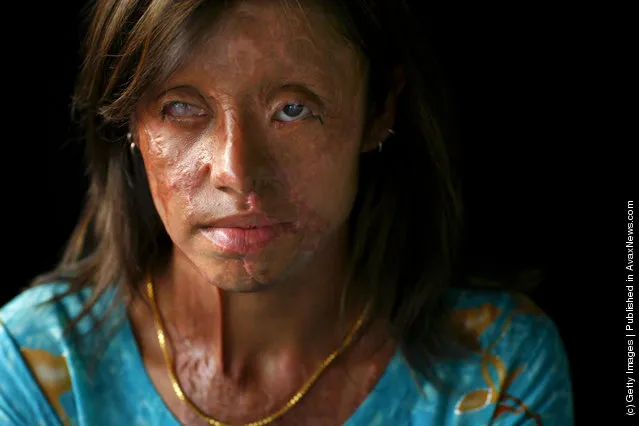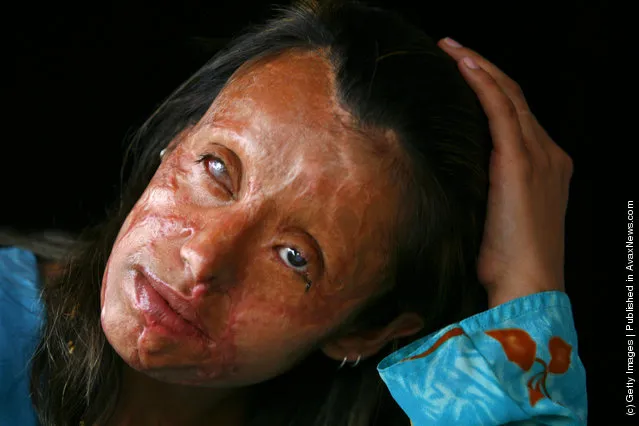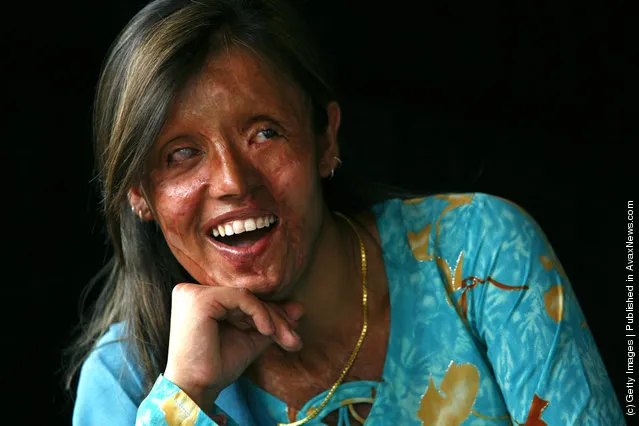Saira Liaqat, 22, a victim of acid violence who was burned 4 years ago, poses in Islamabad, June 11, 2007. Saira is from Lahore and was attacked with acid thrown on her over an argument relating to an arranged marriage. Her soon to be sister-in-law convinced the brother that she was not a suitable wife after the family couldn't afford the money to carry out the pre-marriage ceremony. The UN and other human rights organizations have issued reports for years on many forms of violence against women in Pakistan which involve domestic violence, rape, and honor killings. Acid is thrown at women to avenge the shame that the woman is accused of bringing. Typically it is over marriage refusals, which are often arranged, arguments in the home and sexual advances that are rejected. Acid burns rarely kill but result in serious disfigurement and suffering which can confine women to their homes, leading to social isolation and depression. Allegations are made and the crime is committed. The acid is cheap and readily available to all. Although women have protested the open sale of acid, it is still easily available. Women in Pakistan face biases in the criminal justice system and police are relunctant to deal with the so called “family matters”. Only a small percentage of the cases go to trial, bringing the criminals to justice, while the majority are settled out of court after a substantial bribe is paid. Bribes are comonplace in the culture of the southern Punjab and Sindh areas where a feudal society allows the rich to pay off officials. Illiteracy is commonplace amongst women in the poor rural areas of the country, poverty and a conservative Islamic culture play a strong role in the subordinate position of the female. (Photo by Paula Bronstein/Getty Images)



14 Feb 2012 10:25:00,
post received
0 comments
